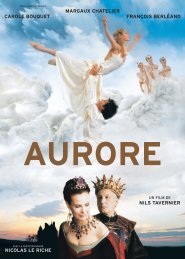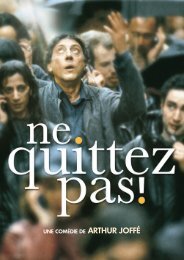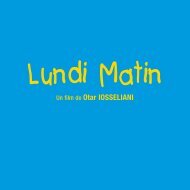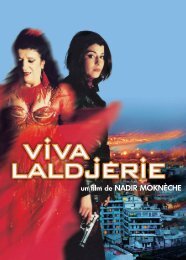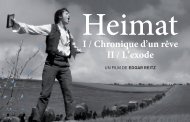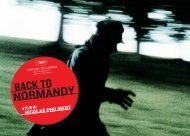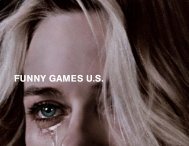chantrapas - Les Films du Losange
chantrapas - Les Films du Losange
chantrapas - Les Films du Losange
You also want an ePaper? Increase the reach of your titles
YUMPU automatically turns print PDFs into web optimized ePapers that Google loves.
? INTERVIEW WITH OTAR IOSSELIANI<br />
■ Chantrapas ?<br />
Otar Iosseliani : It’s Russian, inspired by the<br />
French “chantera pas” (“won’t sing”). At the<br />
end of the XIXth century, the well-to-do families<br />
of Saint-Petersburg took their children to singing<br />
lessons with the Italian masters of bel canto. At<br />
the time, the Russian aristocracy spoke French,<br />
and hence the Italians learned two words, as<br />
they selected the children: “Chantera” (“Will<br />
sing”) and “Chantera pas” (“Won’t sing”).<br />
Later Chantrapas became a common word: the “<strong>chantrapas</strong>” were the<br />
“good for nothings”, the excluded… A bit like my main character, who is<br />
censored in the Soviet Union, and less well received than he expects in the<br />
West. Victor Hugo, Fritz Lang, René Clair, Orson Welles, Tarkovski, Askoldov,<br />
Chenguelaia… all were excluded, they were “Chantrapas”, forced to leave<br />
their native countries, not knowing very well how to swim in these unknown<br />
waters, each with an inner wound.<br />
■ Is this an autobiographical film?<br />
O.I. : No, as my fate was quite different. In the end, I always managed to<br />
do everything I wanted in the Soviet Union, even if my films were banned:<br />
Falling leaves, and all my short films. By the same token, if you were banned,<br />
you were someone who was respected. Then, in 1979, after Pastorale, I was<br />
forced to leave the country. Chantrapas is the portrait of a collection of filmmakers.<br />
Those of us who managed to overcome censorship, who may be<br />
counted on the fingers of the hand: Sergueï Paradjanov, Andrei Tarkovski,<br />
Georgui Chenguelaia, Gleb Panfilov, Alexandre Askoldov…<br />
During that time, 120 filmmakers worked for the<br />
regime, as cinema was an instrument of propaganda.<br />
Nevertheless, one cannot say that the censors were too<br />
severe. They banned the films, but they respected the<br />
filmmakers. It gave them headaches… They allowed us<br />
to finish the film, before banning it.<br />
■ One of the scenes ends on the censor holding his<br />
head in his hands.<br />
O.I. : Yes, he is suffering… They were just as oppressed<br />
by the system as we were. They could talk about your film in harsh terms,<br />
and, after informing you of the ban, come out and discretely shake your hand.<br />
■ The film begins with the screening of a short… one of your early<br />
works.<br />
O.I. : It was made a long time ago. I could have used a film of one of my<br />
colleagues, Chenguelaia or Tarkovski, one of their banned films in the Soviet<br />
Union, but there was a problem of copyright. I made this short film in 1959,<br />
and no one ever saw it.<br />
■ Could we speak of the numerous ellipses in the film?<br />
O.I. : In that respect, I’m not much of a filmmaker, rather, I put together a<br />
puzzle. To be understood, one must always take a step back and then a step<br />
forward. Here, I wanted it to be known that they were friends in childhood<br />
and remained friends as a<strong>du</strong>lts.<br />
I didn’t want to make a true historical reconstruction. In reality, the story<br />
of the film could not occur in less than ten years: the time for the film to be<br />
CHANTRAPAS<br />
5



